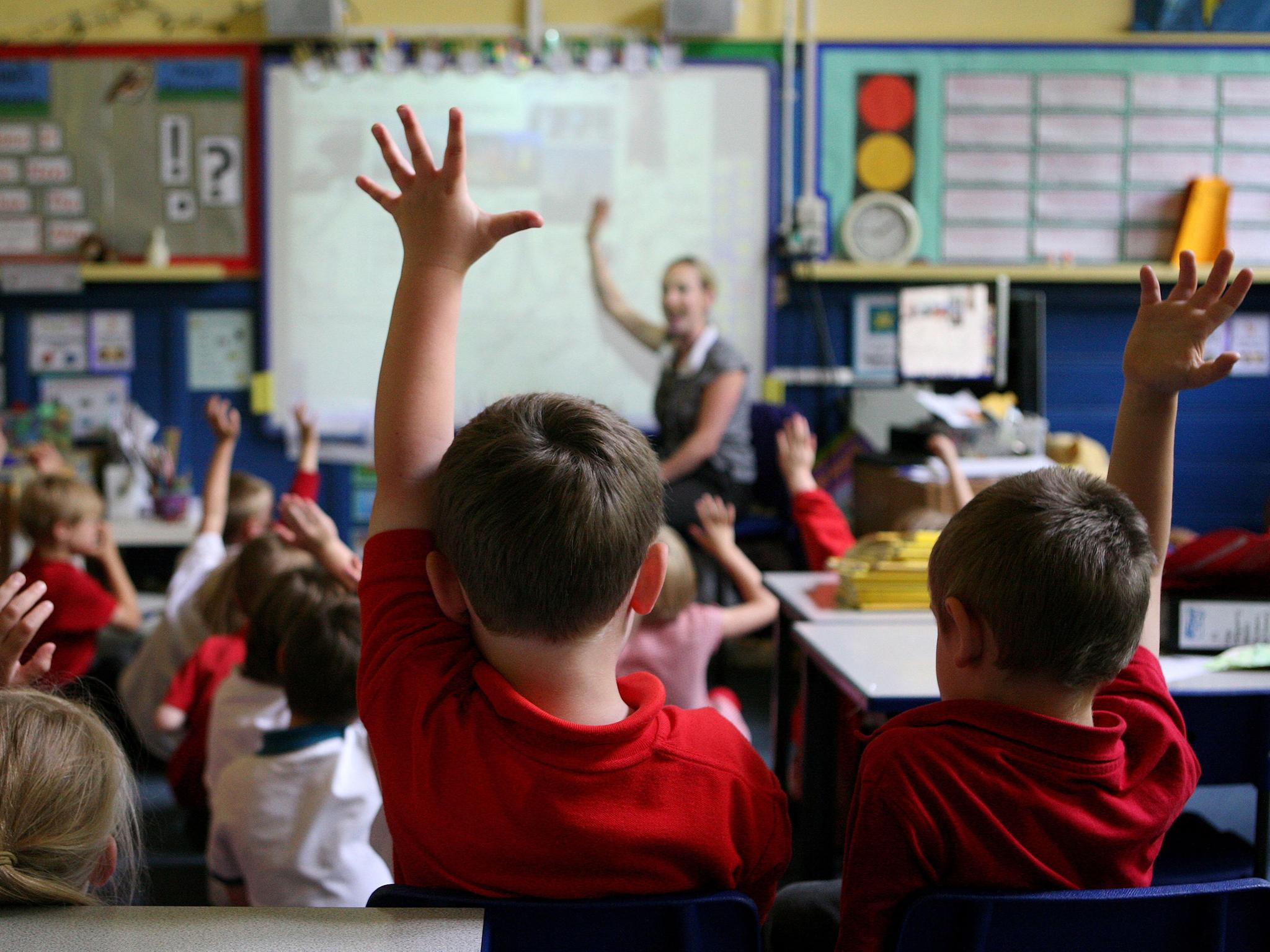Government's planned test for four-year-olds will be 'damaging', education experts warn
It will put undue stress on children and could make school a hostile place, psychotherapists suggest

Your support helps us to tell the story
From reproductive rights to climate change to Big Tech, The Independent is on the ground when the story is developing. Whether it's investigating the financials of Elon Musk's pro-Trump PAC or producing our latest documentary, 'The A Word', which shines a light on the American women fighting for reproductive rights, we know how important it is to parse out the facts from the messaging.
At such a critical moment in US history, we need reporters on the ground. Your donation allows us to keep sending journalists to speak to both sides of the story.
The Independent is trusted by Americans across the entire political spectrum. And unlike many other quality news outlets, we choose not to lock Americans out of our reporting and analysis with paywalls. We believe quality journalism should be available to everyone, paid for by those who can afford it.
Your support makes all the difference.The Government’s plans for a new test for four-year-olds will be “damaging to young children”, parents, teachers and psychotherapists have warned.
A coalition of campaigners has called on the Department for Education to abandon its proposals to spend almost £10m on a new baseline assessment for children at the start of Reception.
The new report, launched in parliament yesterday, warns that “enormous damage” can be done to children when adults believe that children’s ability is fixed and can be defined at a young age.
It adds that children “will be pushed into a world of high-stakes assessment” under the government’s plans, which is says is at “odds with young children’s learning and development.”
The More than a Score coalition – which represents 18 education and parents’ organisations – unveiled the dossier at a meeting hosted by shadow early years minister Tracy Brabin.
The early years experts argue that the assessment, due to be introduced in 2020, will add “another stressor to the existing load” and will “limit playful, creative, and intellectual experiences”.
The test is proposed for the first few weeks of Reception should be abandoned and replaced with teacher assessments throughout the year, campaigners argue.
Alison Roy, a lead child psychotherapist, told The Independent: “If children are being tested before they have established secure relationships with their teachers then it will not be an effective assessment of their capacity to learn or their academic ability.
“I think it is a huge risk as it could make children think school is a hostile place and a judgemental place, rather than a place where they can explore and learn about themselves and their world.”
On the proposed baseline assessment, confirmed by the Government in September last year, Ms Roy added: “I think it is putting undue stress on little children. It is not necessary to test them at that age. I think we have a responsibility to settle them. They are so emotionally fragile at that age.
“They also pick up on the stress of adults and if we have teachers under pressure to meet targets, then children are likely to pick up on the teacher’s reaction to that pressure as well as potentially, the emotional stress of their teachers.”
Madeleine Holt, from the parents’ organisation Rescue our Schools, said: “Parents are becoming far more aware that their children are being over tested. The new test would steer the teaching of four-year-olds towards an excessive focus on numeracy and literacy.”
Labour MP Tracy Brabin said: “I believe children learn through play and creativity, not just through examinations. That’s why it’s great More than a Score is leading on this important work.”
A Department for Education spokesperson said: “Standards are rising in our schools with 1.9m more pupils in good or outstanding schools than compared to 2010.
“The baseline assessment will help establish the progress made by pupils from reception to the end of key stage 2 and ensure schools are accountable for pupils’ progress as well as their attainment.
“Schools will be provided with the required materials and guidance to administer the assessment, which will be carried out in normal teaching time by a teacher or teaching assistant.”
Subscribe to Independent Premium to bookmark this article
Want to bookmark your favourite articles and stories to read or reference later? Start your Independent Premium subscription today.
Join our commenting forum
Join thought-provoking conversations, follow other Independent readers and see their replies
Comments